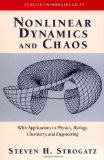Romeo and Juliet
Suppose Romeo is encouraged by love and attention. If Juliet likes him, his feelings for Juliet grow and flourish. If she doesn’t like him, he loses his interest in her.
Juliet, on the other hand, is the opposite. If Romeo doesn’t like her, she needs to win him over and her attraction for him grows. If he likes her, she feels that her task is accomplished and she loses her interest in him. Juliet likes the challenge more than the relationship.

Steven Strogatz used differential equations to model the dynamics of the relationship between Romeo and Juliet. This is a new and fascinating area of applied mathematical research; you can read more about the roller-coaster relationship between Romeo and Juliet in Steven Strogatz’s Nonlinear Dynamics and Chaos: With Applications to Physics, Biology, Chemistry, and Engineering.
Mathematicians like symmetry: in math literature they switch the roles between Romeo and Juliet randomly. So in some papers they give Romeo the role of preferring a challenge over love and in some papers they give that role to Juliet.
When I teach this subject of love, Alexander Pushkin’s famous quote always pops into my mind. The quote comes from the first lines of Chapter Four of Eugene Onegin, and in Russian it is:
Чем меньше женщину мы любим,
Тем легче нравимся мы ей…
I didn’t like the English translations that I found, so I asked my son Alexey to provide a more literal translation:
The less we love a woman, the more she likes us in return…
I blame Pushkin for my tendency to always pick Juliet as the character who thrives on the challenge, even though men are often assumed to be the chasers. I’d like to ask my readers to comment on these roles: Do you think both genders play these roles equally? If not, then who is more prone to be into the chase?
Let’s return to mathematical models. In the original model, the reactions of Romeo and Juliet are a linear function of feelings towards them. I would like to suggest two other roles, in which people react to the absolute value of feelings towards them. They do not care if it is love or hate: they care about intensity.
First, there is the person, like my friend Connie, who feeds on the emotions of other people. She’s turned on by guys who love her as well as by guys who hate her. If they’re indifferent, she’s turned off.
Second, there is the opposite type, like my colleagues George, Joseph, David and many others. They hate emotion and prefer not to be involved. They lose all interest in people who feel strongly about them and they like people who are distant. I know the name for this role: it’s a mathematician!
Share:
svat:
Just for the record, here are the translations of the first four lines of Chapter Four of Eugene Onegin, from the two best English translations (IMHO).
Charles Johnston (British), 1977:
With womankind, the less we love them,
the easier they become to charm,
the tighter we can stretch above them
enticing nets to do them harm.
James E. Falen (American), 1995:
The less we love her when we woo her,
19 November 2010, 1:03 pmThe more we draw a woman in,
And thus more surely we undo her
Within the witching webs we spin.
Jonathan:
The problems associated with translating poetry are well known how can we preserve meaning, rhyme, meter, sound?
We cannot. Some we can approximate, some we lose. The decision, what will be best preserved, is immense, and only then can the difficult work of choosing words start.
The translations svat provides retain far more of Pushkin’s form, his sound, his rhythm. They sound like English versions of the little Pushkin I have heard recited (or tried to read myself).
19 November 2010, 7:29 pmMax:
“Легче”, но совсем не обязательно “больше”.
20 November 2010, 12:21 pmmisha:
“I know the name for this role: it’s a mathematician!” Including yourself?
21 November 2010, 7:38 pmLena:
Танюш, привет! Первый раз читаю твой блог – как интенсивно ты пишешь!Мне трудно на английском комментировать. У меня к тебе вопрос.Я написала тебе письмо. Если не дошло, напиши мне на эл., я отвечу.
22 November 2010, 7:53 amTanya Khovanova’s Math Blog » Blog Archive » Math, Love and Immortality:
[…] is ready to broaden the scope of its models, including venturing into love. Of course, some mathematical models of relationships already […]
27 December 2010, 1:45 pmKermit Rose:
If not, then who is more prone to be into the chase?
Look for other factors.
I am male. I imagine the case that I pursue a woman who has not returned interest in me.
Why would I pursue?
It might be because I have imagined that woman, if she is my friend, to be to be very desirable.
I imagine the case that I do not pursue. That happens if, in my mind, the only desirable trait of the woman is that she is interested in me.
Kermit
3 January 2011, 12:21 pmKayr:
We usually call it The Model of Predator and Prey——After the predators grow, the number of preys dropped by being killed; after the preys decrease, the population of predators declined due to lack of food.
18 December 2024, 5:31 am